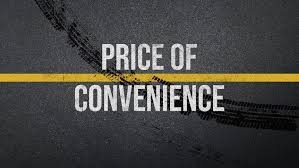In the midst of the COVID-19 pandemic, I had a failed stint as a chicken farmer. While the highs and lows of this venture remain etched in my mind, I remember fondly the platform on which I would buy chicken feed: Copia, an e-commerce site designed to provide quality and affordable goods to rural consumers at no delivery cost.
Copia can be considered an online version of a typical store or outlet to be found in a rural area. The e-commerce capability simply serves to extend the range within which this outlet can operate in any given area.
The online platform exemplifies this concept that e-commerce is not merely an idea in and of itself, but a tool on which a business can be built.
Read: Kenyan E-commerce Startup SkyGarden Shuts Down After Ksh600 Million Funding
Brick-and-mortar businesses do not consider their buildings/shops to be ideas, nor do hawkers consider their arms and shoulders (on which their wares are held) to be ideas themselves. These are platforms for the execution of a business idea, and as such act merely as tools.
Mobile money is widely accepted and used in Kenya, in addition to this, it is widely integrated into the online transaction processes of many platforms. As such, the use of e-commerce is open to pretty much any sector.
Therefore, beyond simple order-and-delivery, there are opportunities for this growth if one has a more zoomed-out perspective. Business is built on using research and creativity to come up with sustainably profitable solutions to problems. By thinking of e-commerce as a tool, the scope of this creativity can be increased significantly.
Email your news TIPS to editor@thesharpdaily.com


















